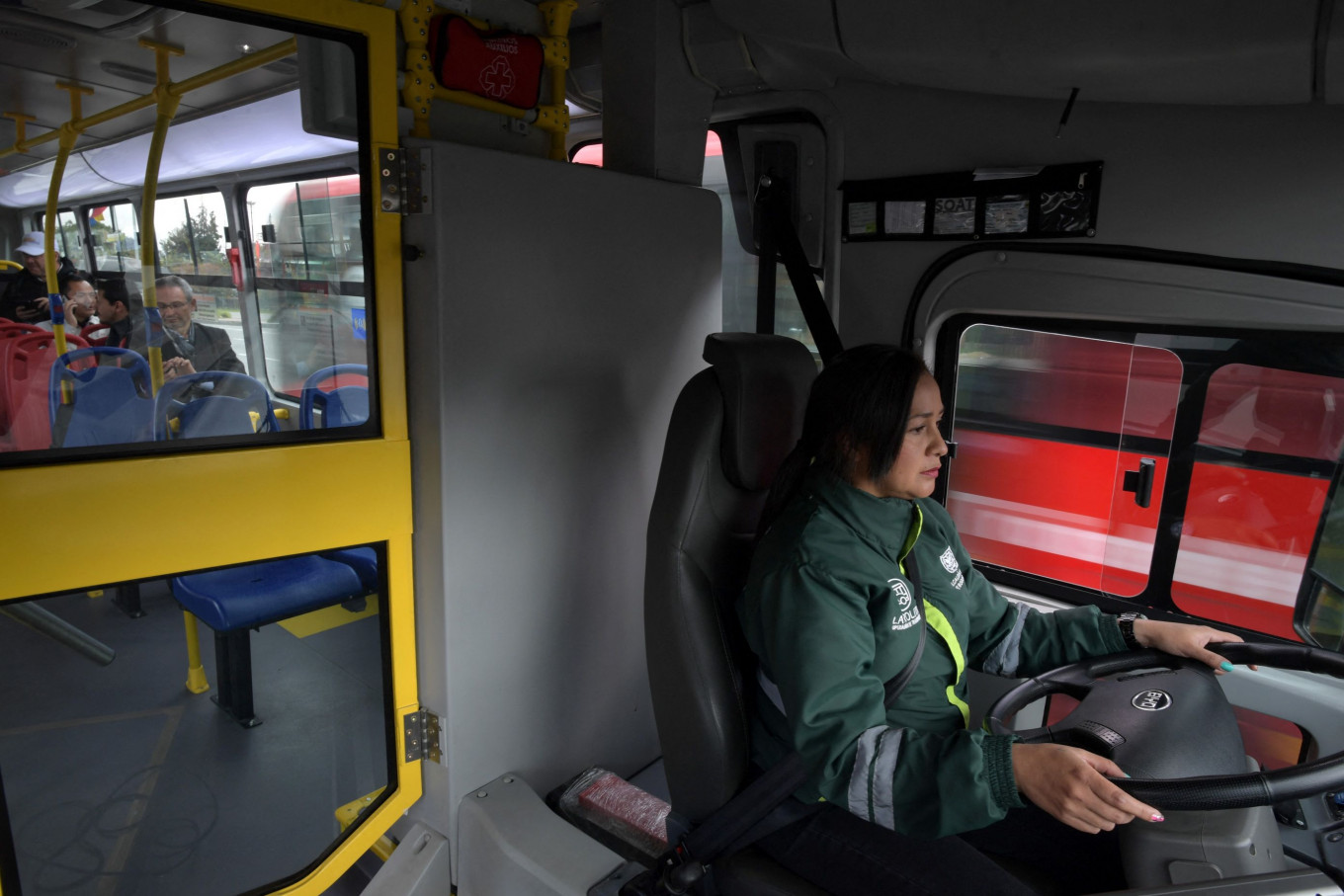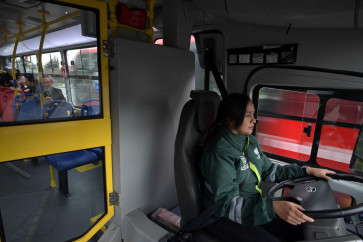Popular Reads
Top Results
Can't find what you're looking for?
View all search resultsPopular Reads
Top Results
Can't find what you're looking for?
View all search results
- -
- Fri, August 4, 2023
Change text size
Gift Premium Articles
to Anyone
Work It Right is a weekly column that provides practical and insightful advice on the complexities of urban transportation.
“There's something so special about a woman who dominates in a man's world. It takes a certain grace, strength, intelligence, fearlessness and the nerve to never take no for an answer.” – Rihanna, singer.
"We need women at all levels, including the top, to change the dynamic, reshape the conversation, to make sure women's voices are heard and heeded, not overlooked and ignored." – Sheryl Sandberg, former COO of Facebook.
These quotes best describe my feelings when I met Carolina Martínez, CEO of La Rolita, Bogotá’s first electric bus operator, at the Perdomo depot in the Ciudad Bolivar neighborhood of Bogotá, Colombia.
The neighborhood is one of Bogotá's poorest, farthest areas, with beautiful views of the highlands. The choice of location for the bus depot is not without reason: La Rolita wants to create jobs for residents, especially women, through the presence of this bus depot in their area. An area that has not been facilitated for more than 10 years with a proper public transportation system.
Although Bogotá has succeeded in reducing carbon emissions significantly and is even recognized by the United Nations as a Clean Development Mechanism (CDM), this city continues trying.
Bogotá operates 1,061 electric buses under the BRT Transmilenio system, with La Rolita the operator that runs the electric buses. La Rolita was formed as a joint effort between the national government and international agencies such as C40 and the World Bank. It proves strong government support is needed to create gender, disability and social inclusion-oriented public policies.
Carolina guided us to a 3,000-square-meter bus depot, facilitating 196 electric buses, where more than 50 percent of the 250 drivers were women. When Verónica Ortiz Cisneros, the communications director of the Institute for Transportation and Development Policy (ITDP), welcomed the first generation of La Rolita’s women drivers with a shaky voice, tried to hold her tears of pride, the participants of MOBILIZE Bogotá gave a thunderous applause to them.
They were standing on the steps, making them taller than us. They looked confident and proud with their light grey uniforms and light makeup. I was in awe, and I could see some participants were trying to hold their tears (I did) while clapping so hard to appreciate them.
We all come from the same perspective, where women are often underappreciated in the “men’s world”, and the transportation field is one of them.
My reasons might be a little different from others; coming from a country with a strongly patriarchal culture, most of the time, being a woman who could drive, we were ridiculed because of our supposed driving behavior. Demeaning comments about women's ability to drive popped out in daily conversations to the point that it became a stigma. Fortunately, La Rolita, the name an endearing term for women in Bogotá, captures all these problems and tries to fill the extensive gaps.
In the recruitment process, La Rolita accepts all women with or without driving licenses or driving skills. They will be provided with courses to become eligible as bus drivers. The women that apply for the job come from various backgrounds, but one thing for sure is that they want a better life for their families and themselves.
La Rolita tries very hard to provide facilities that make female drivers feel safe and comfortable in the depot. The semi-open depot design has a common room, lactation room and children's playroom. The drivers work eight hours per day.
Despite all these efforts, the number of women drivers has not yet reached 100 percent in La Rolita.
When I asked why, according to Caroline, it was challenging for women who apply for the work to complete their training period. It is the family or husband who initially give the women permission. In the middle of training, they can suddenly ask them to quit, or another situation is when the women have to choose between taking care of their children or continuing training. But the 53 percent figure is impressive, and they have not given up yet!
When we visited the common room, three women were chatting with the staff. They were in the process of applying to become drivers.
Carolina asked them to introduce themselves. With shy faces, they introduced themselves to us. With the same enthusiasm, we gave the loudest applause, a sign of full support for them to go through the training period and, in coming years, stand tall with confidence and pride like their predecessors.
***
The writer is senior communications and partnership manager at the Institute for Transportation and Development Policy (ITDP).
Have a question about urban transportation? Send it to wir@thejakartapost.com with your name and current location (anonymous submissions will also be considered). Please note that The Jakarta Post reserves the right to edit your letters for publication.









